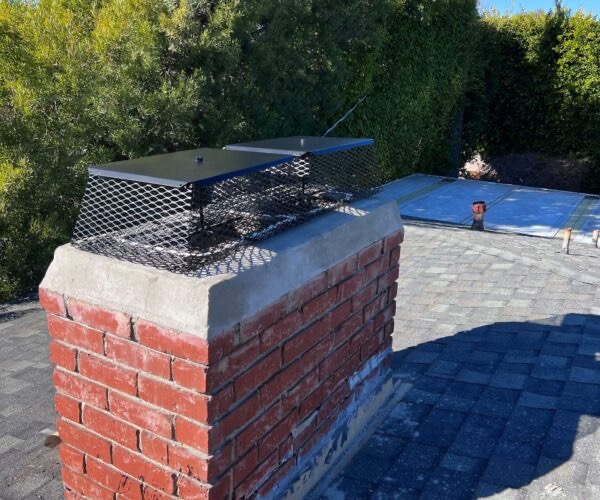Chimney leaks are a common issue that can lead to significant water damage if not addressed promptly. A leaking chimney not only damages the chimney itself but can also cause problems in your home, including mold, rotting wood, and staining on walls or ceilings. Knowing how to identify signs of a chimney leak and understanding the preventive steps to waterproof your chimney can help protect your home from moisture. Here’s a guide on spotting chimney leaks, common causes, and the best ways to protect your chimney from water damage.
Signs of a Chimney Leak
Chimney leaks often show visible signs in and around your home. Spotting these early can help you take quick action before significant damage occurs.
- Water Stains on Walls or Ceilings: Discoloration or stains near the chimney on walls or ceilings indicate moisture has seeped into the home.
- Damp or Musty Odors: A chimney leak can cause moisture to build up in the walls or attic, leading to a musty smell.
- White Streaks on the Chimney (Efflorescence): Efflorescence is a white, powdery residue on bricks or stone, indicating that water is passing through the chimney materials and leaving behind salt deposits.
- Cracked or Spalling Bricks: Spalling is when the surface of the bricks begins to chip or flake away due to water damage.
- Rusting on Metal Components: Rusting on the chimney damper or fireplace doors is a sign that water has entered, as metal elements corrode when exposed to moisture.
- Water Accumulation in the Fireplace: If you find water pooling in the fireplace or see dampness on the firebox walls, it’s a clear sign of a chimney leak.
- Why It Matters: Chimney maintenance in Deer Park allows you to address leaks before they cause structural damage or mold growth, both of which are costly to repair.
Common Causes of Chimney Leaks
Here are some common reasons why chimneys are prone to water issues:
- Damaged or Missing Chimney Cap: The chimney cap is the first line of defense against water entering the chimney.
- Cracked or Deteriorating Mortar Joints: Mortar is the material that holds the bricks together. Over time, exposure to weather can cause it to crack or deteriorate, creating gaps that allow water to seep through.
- Faulty Flashing: Flashing is a metal barrier installed where the chimney meets the roof, designed to prevent water from entering at this seam. Damaged, loose, or improperly installed flashing can lead to leaks.
- No Waterproofing Treatment: Brick and masonry are naturally porous, so they absorb water if not treated with a waterproofing sealant, leading to internal water damage.
- Ice Dams in Winter: Ice dams form when snow and ice melt on the roof, refreezing at the chimney base. This buildup can damage the chimney’s exterior and create leaks.
- Why It Matters: Knowing these causes helps homeowners understand where to look for issues and how to implement solutions that address the root cause of leaks.
Conclusion
Chimney leaks are more than just a nuisance—they can lead to extensive water damage if left unaddressed. Knowing the signs of a chimney leak, understanding its causes, and taking preventive measures like waterproofing can protect both your chimney and your home. By investing in regular maintenance and waterproofing treatments, you’ll extend the life of your chimney, keep your home dry, and avoid the costly repairs that water damage can bring. If you suspect a chimney leak, don’t hesitate to contact a chimney professional for an inspection and necessary repairs.
FAQs
1. How often should I inspect my chimney for leaks?
It’s best to inspect your chimney at least once a year, preferably before the rainy season, to catch any potential issues early.
2. Can I waterproof my chimney myself?
While DIY waterproofing products are available, professional-grade sealants applied by an expert provide more durable and long-lasting protection.
3. How do I know if my chimney cap needs replacing?
If you notice rust, corrosion, or visible damage to the cap, it’s a sign it may need to be replaced.
4. How long does chimney waterproofing last?
Professional waterproofing treatments generally last between 5 to 10 years, depending on the product and exposure to weather.
5. What’s the cost of repairing a chimney leak?
Simple repairs like resealing flashing may be affordable, while extensive masonry repairs can be more costly. A chimney inspection will provide an accurate estimate.
